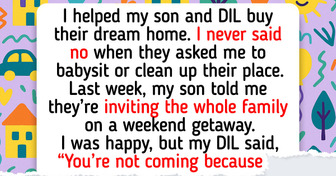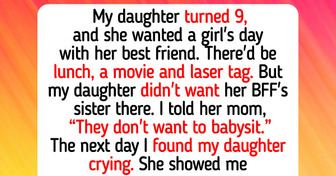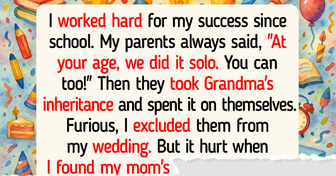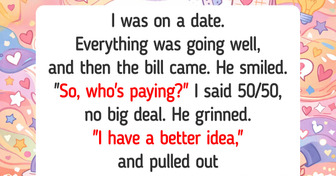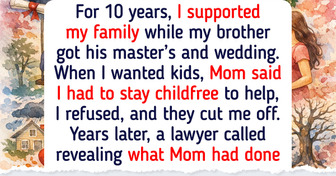My DIL Tried to Exclude Me—So I Served Up the Perfect Payback
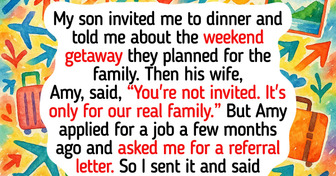
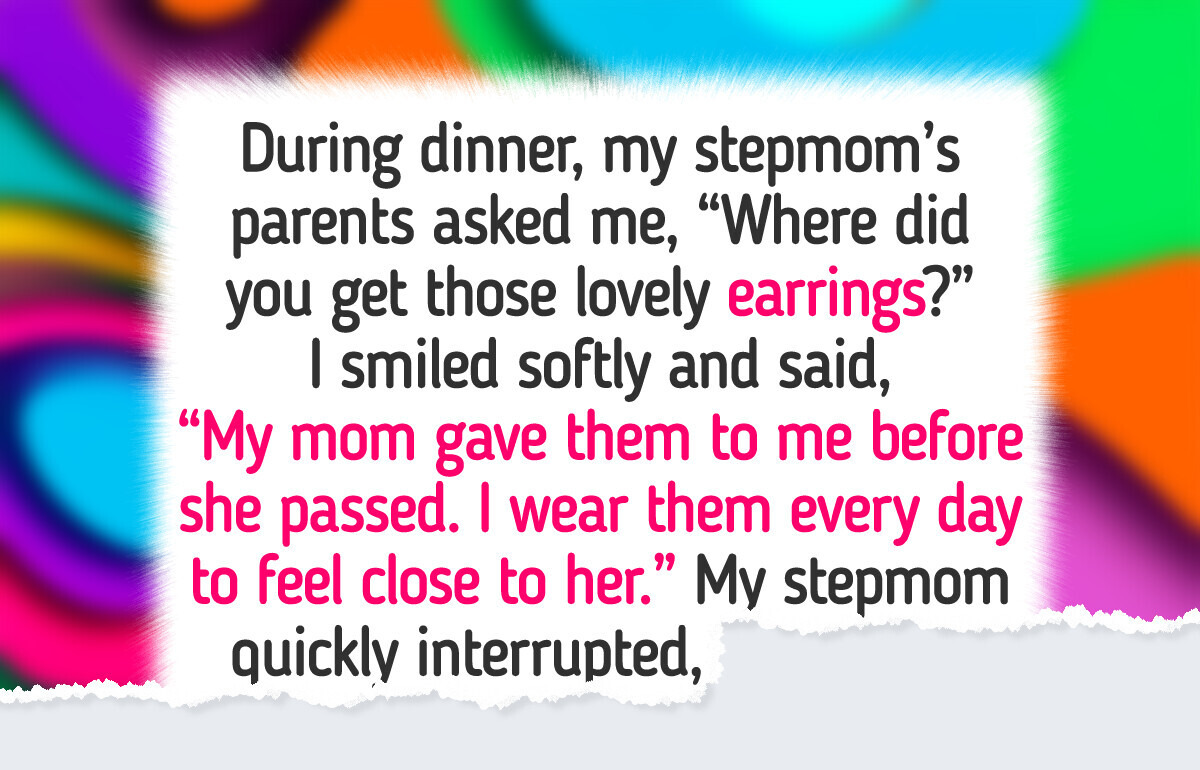
People often emphasize the importance of setting boundaries in romantic relationships or with family, but they can be just as crucial—and just as tricky to navigate. One of our readers reached her breaking point when her stepmother made a demeaning comment about her late mother during a family gathering. What followed was a moment of public reckoning that changed their dynamic forever.
Hello Bright Side,
It was the first time in a while that the whole family, including my stepmom’s parents, had come together for a meal. My actual mom passed away several years ago. And even though life has moved on in many ways, her memory is still very present for me—especially on days like this.
I’d put on the earrings she gave me, like I always do when I want to feel close to her. I didn’t expect them to become the center of a tense moment.
During dinner, my stepmom’s parents asked me, “Where did you get those lovely earrings?” I smiled softly and said, “My mom gave them to me before she passed. I wear them every day to feel close to her.”
My stepmom quickly interrupted, “She’s not your mom anymore! I’m the one who raised you.” I laughed and said, “Are you trying to pretend you care about me? You’re not doing a great job.”
Her face dropped. She left the room. My dad told me later that I embarrassed her in front of the whole family.
Now she’s told my dad I’m “stuck in the past” and making her feel unwanted. He wants me to “just move on.” But I don’t think remembering my mom means I’m not moving forward. Am I being unfair?
Sincerely,
Emily
Thank you, Emily, for sharing your story and trusting us. It’s difficult to find common ground with stepfamily, so we’ve gathered tips for you to navigate the situation.
Our culture often rushes people through grief, urging them to “move on” instead of truly processing what they’ve lost. But grief isn’t a straight path—it’s a personal, emotional journey with ups and downs.
Remembering a loved one, like wearing a pair of earrings to feel close to your late mom, isn’t about being stuck in the past. It’s about honoring a connection that still matters. Moving forward doesn’t mean forgetting—it means carrying their memory with you as you heal.
It’s important to remind yourself that you haven’t done anything wrong by honoring your feelings and setting boundaries. Just because you feel guilty doesn’t mean you were unfair—protecting your emotional space is valid. Set boundaries with compassion; you can be firm while still expressing understanding.
When guilt creeps in, remember why you set the boundary in the first place. Boundaries aren’t selfish—they help relationships thrive by creating clarity and mutual respect. And finally, recognize your own limits; you’re allowed to protect your time, energy, and emotions, especially in situations that feel hurtful or overwhelming.
As humans, we naturally try to make sense of the world by putting people and situations into simple categories like good or bad, right or wrong. This black-and-white thinking helps us process things quickly, especially in a fast-paced, overwhelming world.
While it can be a useful mental shortcut, it doesn’t always capture the full picture. If we rely on it too much, we risk misunderstanding others and creating unnecessary emotional tension. Recognizing the gray areas can lead to more compassion and healthier relationships.
Talking about and honoring our loved ones who have passed is healthy and important, yet many cultures don’t make room for grief beyond the early mourning period. We often act as if the absence fades, but the impact of that person—and the grief—remains. Making space for that ongoing connection can be a powerful part of healing. It also helps others understand us better, including how we were shaped by that relationship. In doing so, we keep their legacy alive.
Coping with people who don’t share your emotional history can be challenging, especially when they dismiss or misunderstand your feelings. Remember that your grief and experiences are valid, even if others can’t fully relate.
Try to communicate your emotions calmly and clearly, setting respectful boundaries when needed. Lean on those who do understand—whether it’s close friends, support groups, or a therapist. Surrounding yourself with empathy makes it easier to navigate relationships where understanding is limited.
If you’re struggling to set boundaries and reclaim your role as Mom, this story—and the lessons it offers—might be just what you need.

